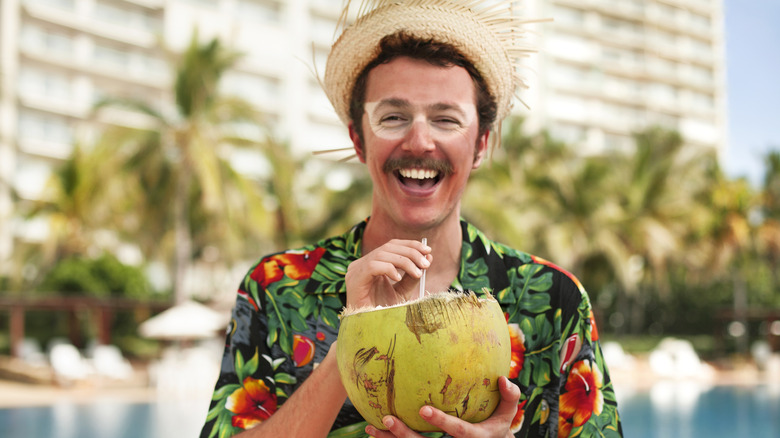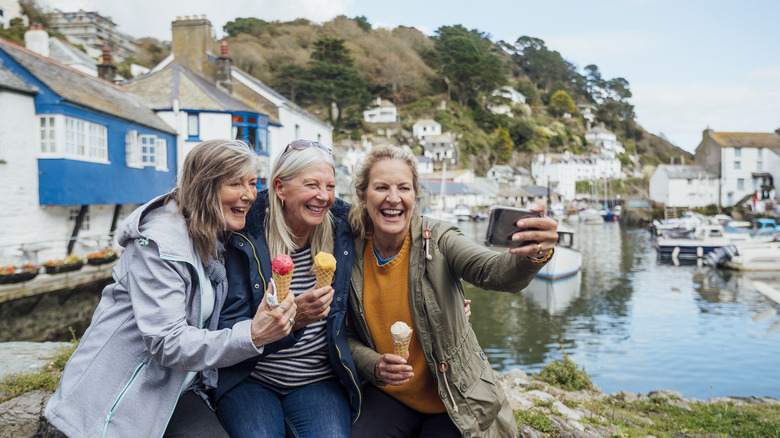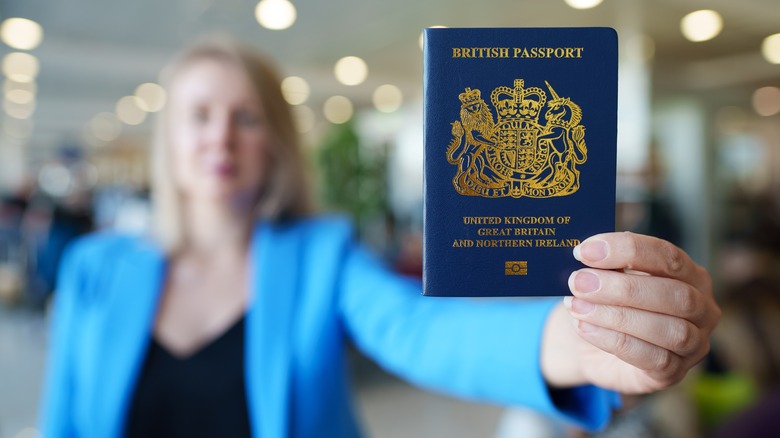The Unusual Name Locals Have For Tourists Who Get Sunburnt In Spain
Being sunburnt is always an embarrassing ordeal, and can be a painful result of too much fun in the sun when you're on vacation. According to a blog article by European travel writer and expert Rick Steves, locals in Seville, Spain, have found a food-based name to describe tourists who get badly sunburnt. They are referred to as "shrimps," or "camarones" in Spanish, due to their pink skin. He writes that there is also a name for people who walk next to buildings to try and find shade — "wall crawlers." Regardless of what they do, it is common for people around the world to give nicknames to tourists and these words can be descriptive or have fascinating origins.
As Europe has so many different countries, languages, and distinct cultural regions, it means there is a wealth of unique phrasing out there, some dedicated to talking about tourists. In the English county of Cornwall, tourists are called "emmets," which is also a (marginally offensive) nickname partially based on tourists being red in color. This is believed to come from the old English word for ant, as they are red and move around in groups, much like tourists. The Cornish word for ants is moryon which is also used to describe tourists elsewhere in the region. So next time you're on the perfect European trip, you may find a new and unique word for tourist that you haven't heard before... especially if you're sunburnt.
Nicknames for tourists around the world
In the U.S., there are also a variety of nicknames for tourists in popular vacation areas. On the South Coast, Martha's Vineyard tourists are known as "washashores," as they come to the beaches to sunbathe and then leave. In Wareham, they are known as "seagulls," and as "temps," in Swansea.
In Latin America, people refer to English-speaking tourists as "gringos," but there is debate over the origin of the word. It is believed to have either come from the word "Griego," which means "Greek" as residents struggled to understand foreigners, or it comes from "peregrino," which means "foreigner," or "pilgrim," in Spanish. Over in West Africa, "mzungu," is often used to describe people who stand out as tourists. It roughly translates to mean "wanderer," or someone who walks around aimlessly as "zungu," means spinning around in the same place. One European country that has many nicknames for tourists, as well as receiving many nicknames themselves is the U.K.
Nicknames for UK tourists
British tourists have their own nicknames around the world. In the U.S. they are called "limeys," as sailors would drink lime juice to prevent the disease of scurvy. Australia, New Zealand, and South Africa all call Brits "poms," which is also because they burn in the sun and resemble the color of a pomegranate. In France, Brits are "rosbif," because they like to eat roast beef for their Sunday dinner.
In Devon, another region with the best beach in all of the United Kingdom, "grockle" is used to describe holidaymakers, and the word is taken from the name of a creature in a children's comic. This dragon-like animal could only say "grockle." This word was then extended to include places tourists go to or stay in so "grockleboxes" are caravans, "grockle coops" are hotels, and "grockle-bait" means souvenirs. Next time you go on vacation, consider asking the locals what unique terms they have to refer to tourists to learn a new phrase! And to achieve cultural chameleonism, as Rick Steves always suggests, it's best to avoid getting a sunburn.


